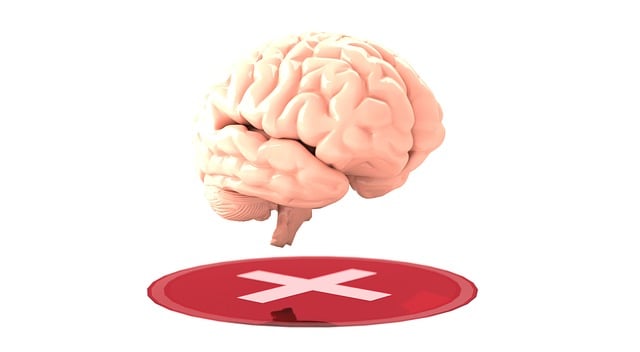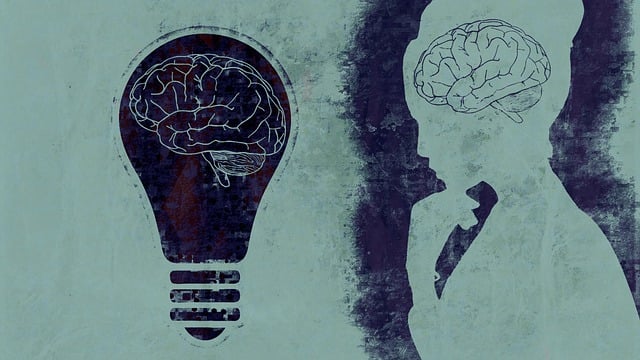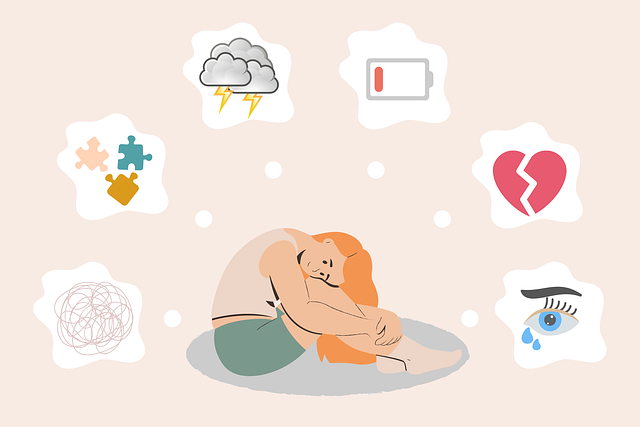Mental illness stigma deeply affects individuals' willingness to seek help, leading to social isolation and fear of judgment. This hinders access to crucial therapies like Castle Rock Cognitive Processing Therapy (CRCPT), which targets negative thought patterns. To combat this, comprehensive strategies are needed, including public awareness campaigns, mental health education, and culturally sensitive practices. CRCPT's success, combined with these initiatives, can reduce stigma, foster supportive environments, and improve access to evidence-based therapies, ultimately benefiting those facing mental health challenges. Sharing personal recovery stories on digital platforms further aids in dispelling myths and promoting understanding and early intervention.
Mental illness stigma remains a significant barrier to seeking help, but concerted efforts are underway to reduce it. This article explores diverse strategies aimed at combating stigma and promoting understanding. From cognitive processing therapies like Castle Rock Cognitive Processing Therapy, which offers promising results, to educational initiatives and policy reforms, each sector plays a critical role. By sharing recovery stories and fostering supportive communities, we can create a world where mental health is treated with the same compassion as physical health.
- Understanding Stigma: Its Impact on Mental Health Seeking
- Castle Rock Cognitive Processing Therapy: A Promising Approach
- Educational Initiatives: Spreading Awareness for Change
- Policy and Legal Reforms to Fight Stigma in Healthcare
- Celebrating Recovery: Sharing Stories for a Supportive Community
Understanding Stigma: Its Impact on Mental Health Seeking

Stigma surrounding mental illness can have profound effects on individuals’ well-being and willingness to seek help. It often manifests as negative attitudes, beliefs, and stereotypes about people with mental health conditions, leading to discrimination and social exclusion. This stigma can make those struggling feel ashamed, embarrassed, or even afraid to open up about their experiences, hindering their path to recovery. In many cases, the fear of being judged or misunderstood prevents individuals from accessing essential resources like Castle Rock Cognitive Processing Therapy, which focuses on transforming negative thought patterns into healthier ones.
Understanding stigma’s impact is crucial for developing effective strategies to reduce it. Communication strategies that promote awareness and educate the public about mental health can help dispel myths. Coping skills development programs empower individuals to manage their conditions and build resilience. Furthermore, cultivating cultural sensitivity in mental healthcare practices ensures that diverse populations feel welcomed and supported, addressing unique barriers within specific communities. By implementing these approaches, we can create a more inclusive environment where those facing mental health challenges feel safe to seek the help they need, ultimately improving access to evidence-based therapies like Castle Rock Cognitive Processing Therapy.
Castle Rock Cognitive Processing Therapy: A Promising Approach

Castle Rock Cognitive Processing Therapy (CRCPT) is an innovative approach gaining recognition for its potential to reduce stigma surrounding mental illness. This therapy focuses on challenging and transforming negative thought patterns, which are often at the root of stigmatizing beliefs. By targeting these cognitive distortions, CRCPT aims to empower individuals to manage their mental health more effectively.
The therapy’s success lies in its ability to educate and facilitate self-care practices, helping people understand that seeking help is a sign of strength. This approach, combined with public awareness campaigns and burnout prevention strategies, can contribute significantly to creating a more supportive and inclusive society for those dealing with mental health challenges.
Educational Initiatives: Spreading Awareness for Change

Educational initiatives play a pivotal role in reducing the stigma surrounding mental illness. By implementing programs that focus on spreading awareness, schools, communities, and workplaces can foster an environment where individuals feel comfortable seeking support for their mental health. Castle Rock Cognitive Processing Therapy, for instance, is a therapeutic approach that has gained traction in recent years. This innovative therapy empowers individuals to challenge negative thought patterns and beliefs, thereby enhancing their overall mental wellness.
Integrating Mental Health Policy Analysis and Advocacy into educational curricula can further strengthen these efforts. Teaching students about the societal impact of mental illness and promoting open discussions on mental health can break down barriers and encourage empathy. Additionally, promoting Self-Care Routine Development for Better Mental Health through workshops and resources can equip individuals with practical tools to maintain their well-being. These initiatives collectively contribute to a more inclusive and supportive society where everyone has access to the care they need.
Policy and Legal Reforms to Fight Stigma in Healthcare

Mental illness stigma reduction efforts often involve policy and legal reforms aimed at creating more inclusive healthcare environments. One such approach is integrating Castle Rock Cognitive Processing Therapy into standard treatment protocols. This therapy, known for its effectiveness in addressing trauma and anxiety, can help dispel myths surrounding mental health issues. By educating healthcare professionals and policymakers, these reforms ensure that individuals seeking help are met with empathy and understanding rather than judgment.
In addition to therapy, Public Awareness Campaigns Development plays a crucial role in destigmatizing mental illness. These campaigns use various media platforms to share personal stories, dispel misconceptions, and promote early intervention. Crisis Intervention Guidance, including accessible resources for stress reduction methods, also contributes to a more supportive system. Such initiatives not only empower individuals to seek help but also foster a societal shift towards greater acceptance and understanding of mental health challenges.
Celebrating Recovery: Sharing Stories for a Supportive Community

In today’s digital era, sharing personal stories of recovery from mental illness can significantly contribute to stigma reduction efforts. By celebrating recovery, individuals who have successfully navigated challenges like anxiety, depression, or PTSD can inspire hope in others. Platforms such as social media and online forums allow for the creation of supportive communities where people can connect, share experiences, and offer encouragement. This sense of belonging is crucial for individuals undergoing therapy, including Castle Rock Cognitive Processing Therapy, as it aids in building self-esteem and fostering resilience.
When individuals openly discuss their mental health journeys, they humanize the experience, dispelling myths and stereotypes. Sharing stories can also educate others about effective treatment methods, such as cognitive processing therapy, which has proven successful in various cases. Moreover, these narratives emphasize the importance of early intervention and self-care strategies like stress reduction methods to prevent burnout. Through open dialogue, communities can foster understanding, empathy, and support for those facing mental health challenges.
Mental illness stigma reduction is a multifaceted effort that requires both therapeutic interventions and societal changes. By combining educational initiatives, policy reforms, and supportive communities, we can create an environment where individuals feel empowered to seek help without fear of judgment. Castle Rock Cognitive Processing Therapy stands out as a promising approach, offering effective tools for managing mental health challenges. As we continue to celebrate recovery stories, these collective efforts will foster understanding, empathy, and ultimately, a more inclusive society for those living with mental illness.














